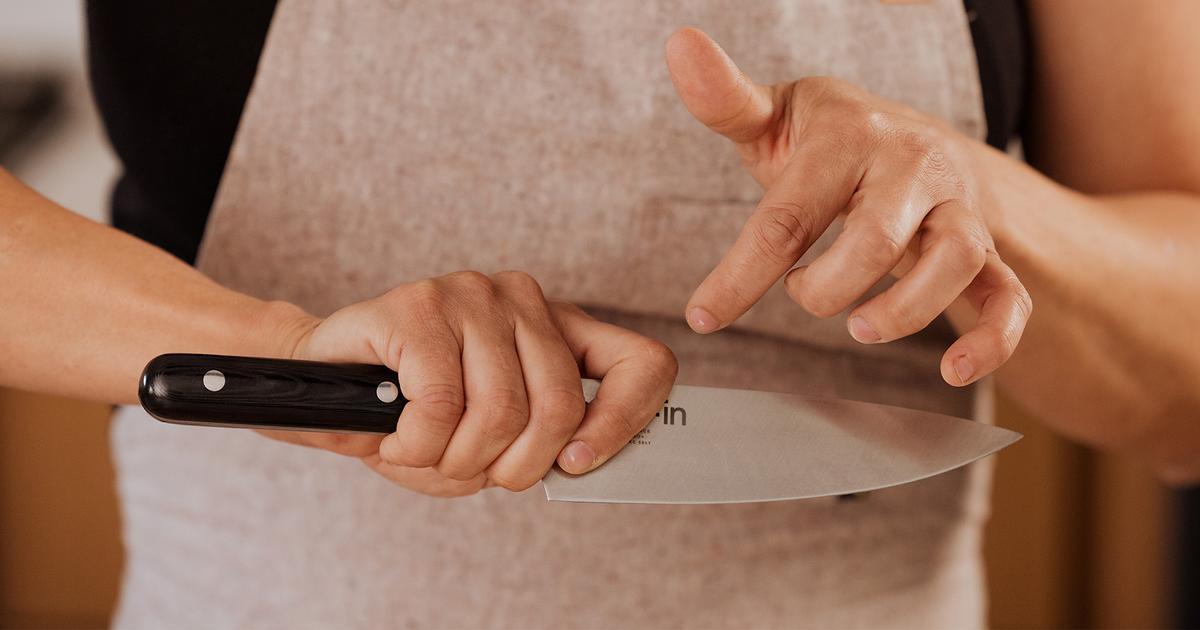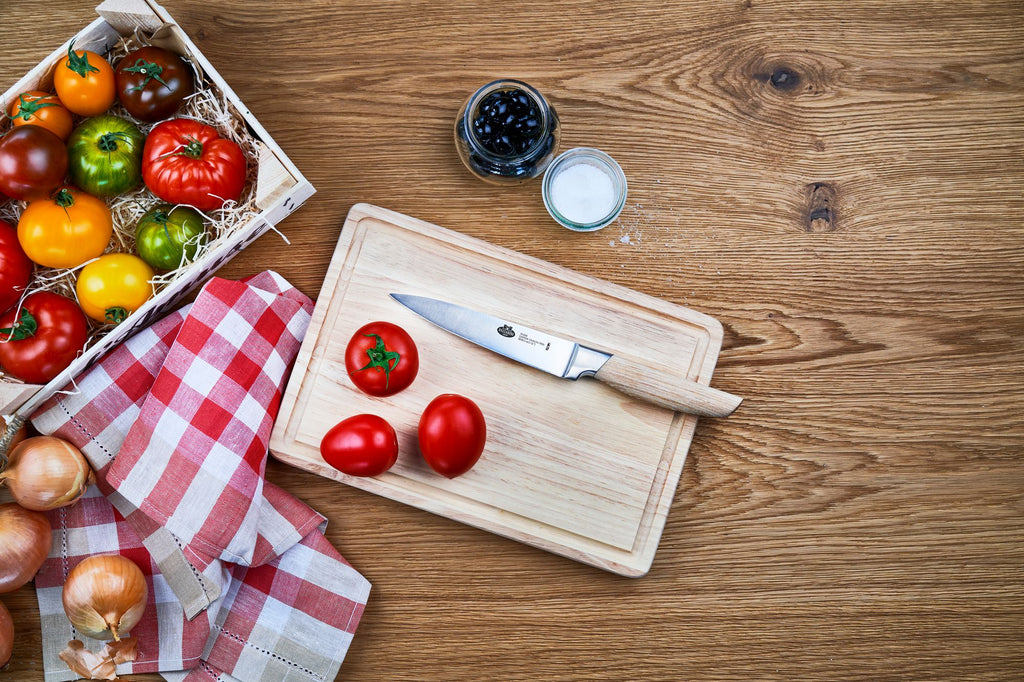In the world of culinary arts, the tools you use can significantly influence the quality of your work. For kitchen professionals, a well-crafted knife is not just a tool but an extension of the hand. Among the array of knives available, ergonomic German knives stand out for their blend of precision, durability, and comfort. These knives are meticulously designed to enhance the culinary experience, making them a popular choice among chefs worldwide.
German knives are renowned for their robust construction and sharpness, but their ergonomic design is what truly sets them apart. This article delves into why ergonomic German knives are a staple in professional kitchens and how they can elevate your culinary craft.

The Importance of Ergonomics in Knife Design
Ergonomics refers to the design of tools and devices that complement the human body's natural movements, reducing strain and improving efficiency. In the kitchen, where chefs may spend hours chopping, slicing, and dicing, the ergonomic design of a knife is crucial. An ergonomic knife ensures that the handle fits comfortably in the hand, providing a secure grip that minimizes fatigue and the risk of injury.
German knives are particularly noted for their ergonomic designs. Brands like Wsthof and Zwilling have perfected the art of balancing the blade with the handle, ensuring that the knife feels like a natural extension of the user's hand. This balance is essential for precision cutting and reduces the effort needed to perform repetitive tasks.
Unique Features of German Knives
What makes German knives unique are their distinctive features. Typically crafted from high-carbon stainless steel, these knives offer excellent edge retention and resistance to rust and corrosion. The full-tang design, where the blade extends into the handle, provides added strength and stability.
Moreover, the handles of these knives are designed for ergonomic comfort. Whether made from synthetic materials or traditional wood, the handles are shaped to fit comfortably in the hand, providing a secure grip even when wet. Learn more about the benefits of wooden handles in German knives.
Why Choose Ergonomic German Knives?
For kitchen professionals, the choice of knife is as important as the ingredients. Ergonomic German knives offer several advantages that make them ideal for professional kitchens:
Precision and Control
The sharpness and balance of German knives allow chefs to perform precise cuts with ease. The weight distribution ensures control, which is crucial for delicate tasks like filleting fish or finely chopping herbs.
Durability
Made from high-quality materials, German knives are built to withstand the rigors of a busy kitchen. With proper care, these knives can last a lifetime. For tips on maintaining your German knives, check out this comprehensive guide.
Comfort and Reduced Fatigue
The ergonomic design minimizes hand fatigue, allowing chefs to work longer without discomfort. This is especially important in professional settings where chefs may be required to prepare large quantities of food.
How to Care for Your Ergonomic German Knives
To maintain the performance and longevity of your ergonomic German knives, proper care is essential. Here are some tips:
- Always hand wash your knives with mild detergent and dry them immediately to prevent rust.
- Use a sharpening stone or a professional sharpening service to maintain the edge of the blade.
- Store your knives in a knife block or on a magnetic strip to protect the blade.
For more detailed care instructions, visit the Zwilling guide on knife care.
Conclusion
In conclusion, ergonomic German knives are an indispensable tool for kitchen professionals. Their combination of precision, durability, and comfort makes them a worthwhile investment for anyone serious about their culinary craft. Whether you're a seasoned chef or an aspiring cook, these knives offer the performance and reliability needed to excel in the kitchen.
For more insights on choosing the right knife, explore our article on German knives for small hands.

FAQs
What makes German knives superior to other knives?
German knives are known for their high-quality construction, sharpness, and ergonomic design, which offer superior comfort and control compared to many other knives.
How often should I sharpen my German knives?
It's recommended to sharpen your German knives every few months, depending on usage. Regular honing can help maintain the edge between sharpenings.
Can ergonomic German knives be used by beginners?
Yes, ergonomic German knives are suitable for all skill levels. Their design makes them easy to handle, providing a comfortable and safe experience for beginners.


























